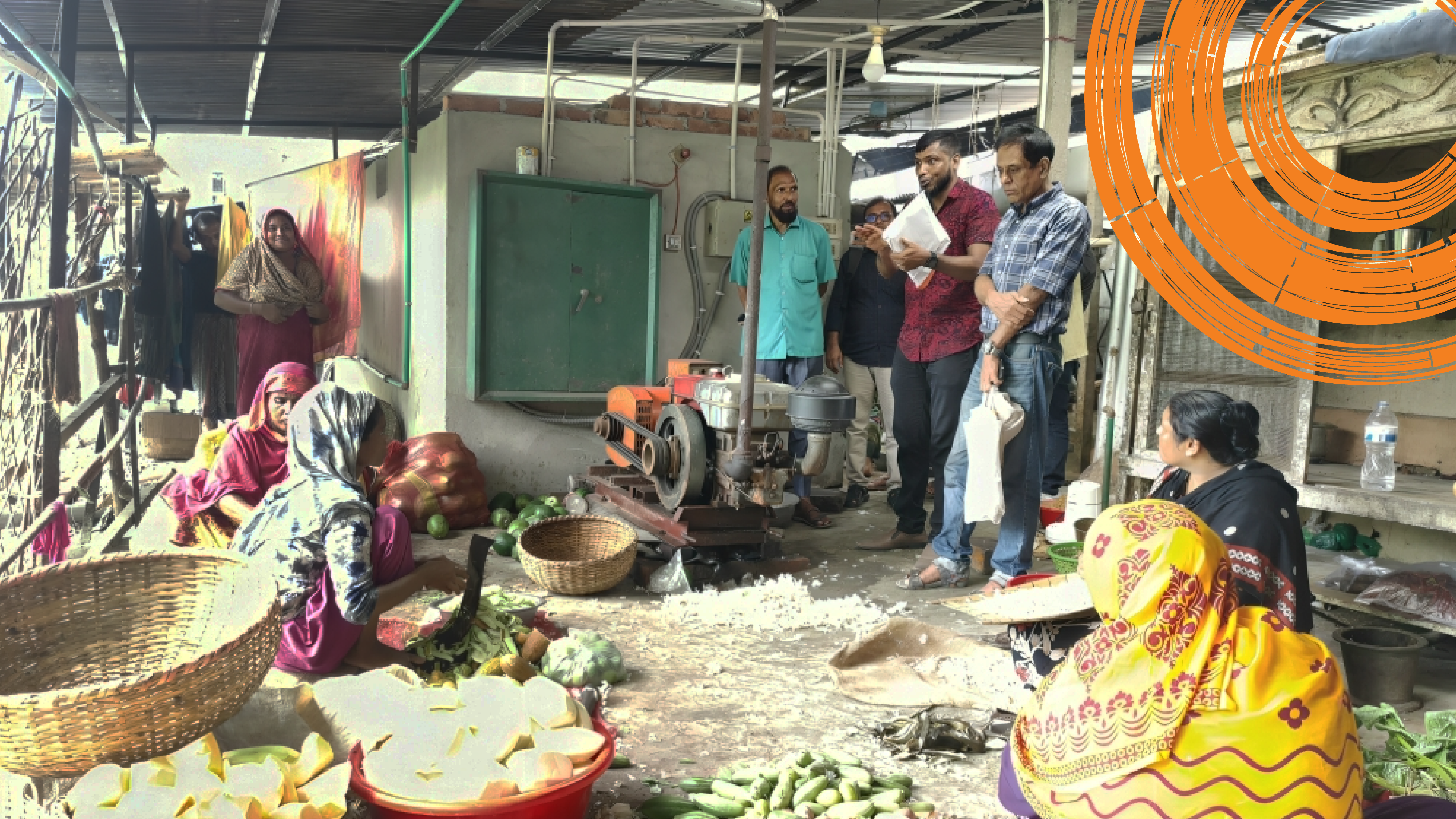
In Bangladesh, daily waste generated from households, markets, and various institutions (restaurants, offices, educational institutes, hospitals, community centres, etc.) presents a significant burden. The primary challenges in waste management, including collection, transportation, and dumping, are especially pronounced at the district and municipal levels compared to metropolitan and divisional cities. Inadequate infrastructure often leads to waste being dumped outside designated areas, harming both the environment and public health. Innovision Consulting, in partnership with Natural Synergies, Xplore Business, and Brignall Consulting, is working to improve the waste management system in Jhenaidah Municipality. Funded by Innovate UK, the project focuses on converting organic waste into biogas and fertilizer through technical and societal innovations. Jhenaidah Municipality, under the jurisdiction of the Local Government, Rural Development, and Cooperatives Ministry of the Government of Bangladesh, is the lead implementing partner. The project, running from March 2023 to February 2025, aims to bring systemic changes to waste management practices in Jhenaidah Municipality, with a vision for sustainable improvements beyond the project period.
The project is developing the NS-SONEK, a low-energy pre-treatment system designed by Natural Synergies to enhance biogas production using the Advanced Thermophilic Anaerobic Digester (NS-ATAD). This innovative technology will transform locally sourced organic waste—including faecal sludge, market waste, and household waste—into compressed-cylindered biogas (CBG), providing a sustainable alternative to natural gas for clean cooking and transport.
The NS-ATAD/SONEK system offers a zero-waste solution by producing not only affordable bioenergy but also pathogen-free clean water and fertilizer, benefiting local farmers and supporting a circular economy. Designed for developing countries like Bangladesh, this market-driven technology aims to expand from sub-districts to cities. By collaborating with local communities and municipalities, the project seeks to improve waste management and sanitation services, enhancing quality of life and reducing environmental impacts.
The project emphasizes gender diversity, social inclusion, and community involvement. By raising awareness about waste segregation at the source (separating organic and inorganic waste), the project aims to ensure a steady supply of waste to the treatment plant while making clean energy and fertilizer accessible to local households, transportation businesses, and farming groups.
To date, we have facilitated the municipality in organizing training and learning trips for waste workers/operators, provided equipment for waste collection and transportation, conducted awareness campaigns on waste management, organized local consultation workshops, established a mobile-based service delivery/payment system, and carried out various assessments and studies. Our project team, consisting of two female and two male field coordinators, is currently assessing the level of awareness and practices regarding organic and inorganic waste segregation across the nine wards of Jhenaidah Municipality. Based on the outcomes, we will evaluate the project’s impact over the past 18 months.